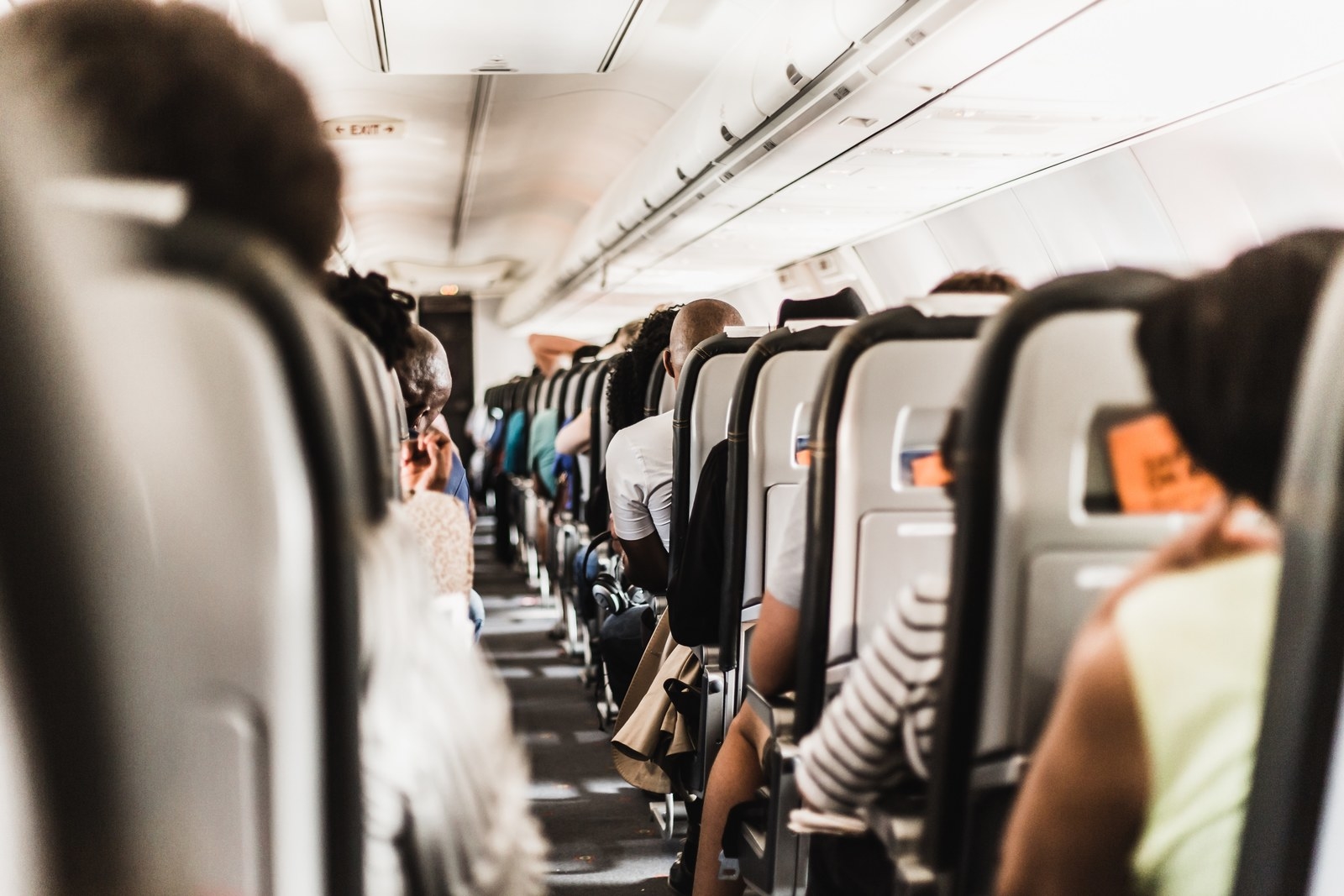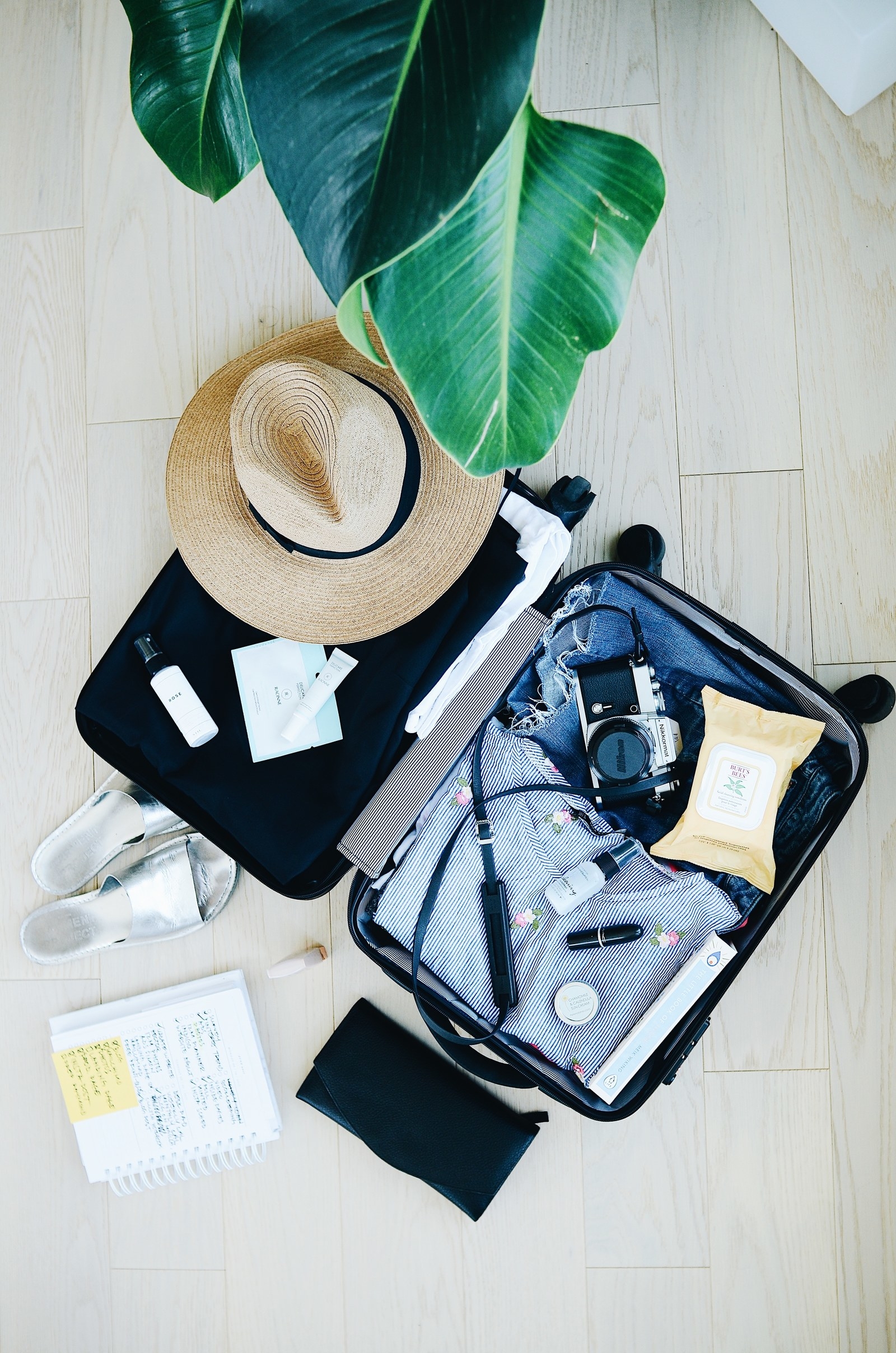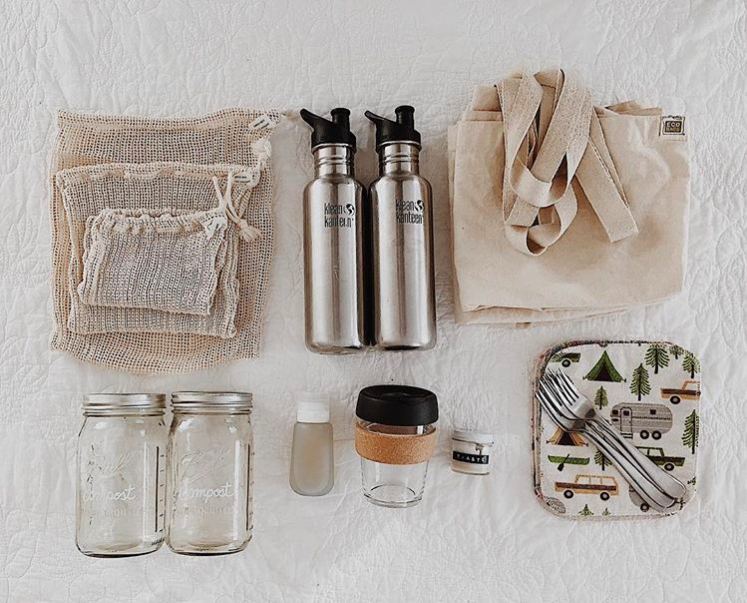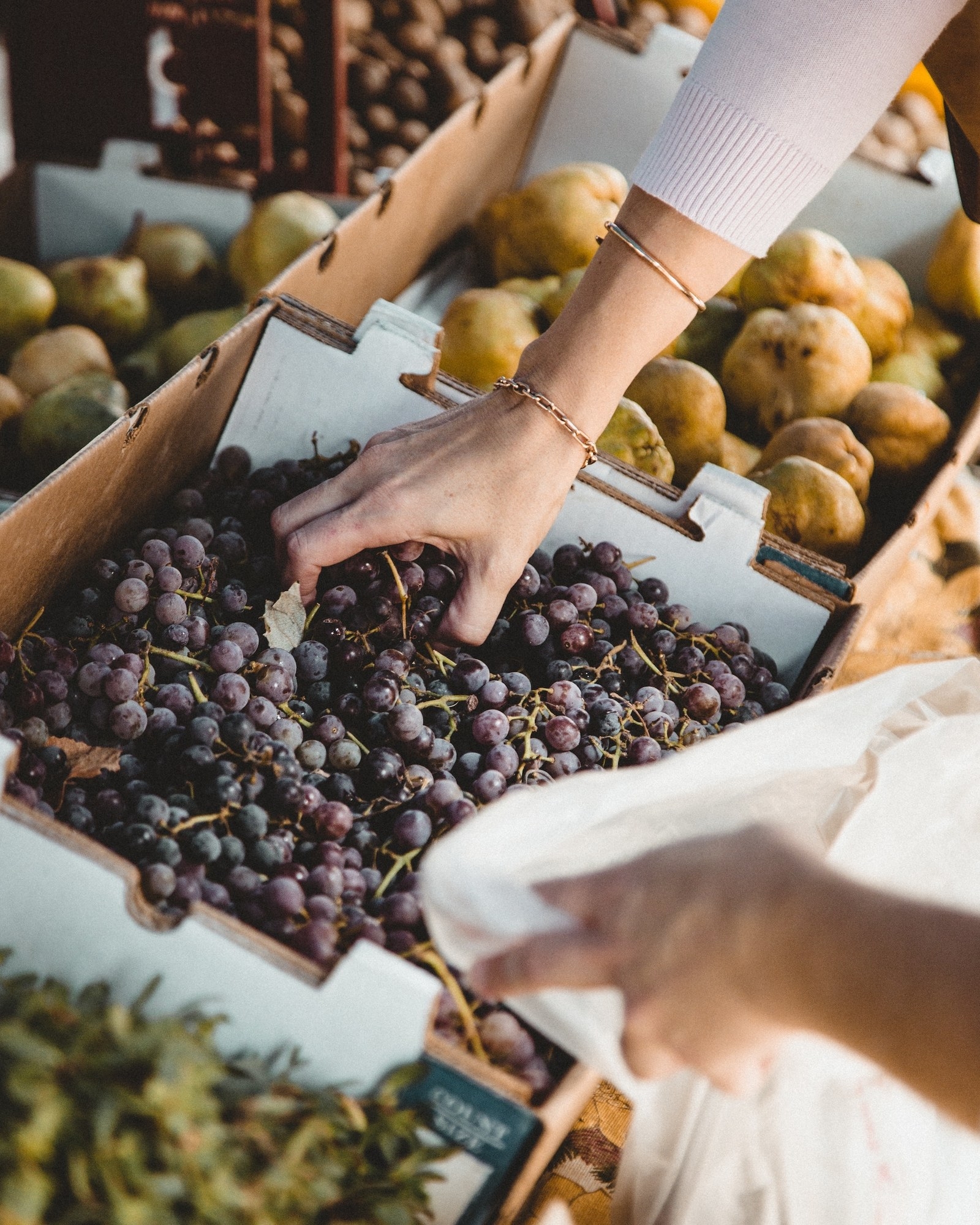From paper tickets to plastic souvenirs to air pollution, the environmental impact of traveling is vast — a 2018 study even found that tourism alone accounts for 8% of global greenhouse gas emissions.

1. If you're flying, try to book direct flights.
I know, I know, flying isn't exactly great for the environment (aircraft account for 12% of all transportation greenhouse gas emissions in the United States), but sometimes it's the only option, folks. When that's the case, do yourself and the planet a favor and book nonstop flights if possible. Takeoff and landing cause the most emissions, so if you can reduce the amount of flights on your journey (aka cut out connections), you'll reduce your footprint too.
2. And opt for mobile tickets.
Whether you're traveling by plane, train, or bus, there should be an option to receive your boarding pass or ticket via email. Not only does that save paper, but it also makes things easier for you when the time to travel arrives — all you have to do is pull up the ticket on your phone to be scanned.

3. Look into buying offset credits, which balance out the cost of your carbon emissions while traveling.
For a surprisingly small fee, you can purchase offset credits through airlines like Delta and United, and third parties like Terrapass, that balance out the carbon emissions associated with your trip. Basically, the company calculates the approximate cost of the carbon footprint you made during your travels and you pay the monetary equivalent, which is then used to fund projects that destroy greenhouse gases and produce renewable energy. Who knows — maybe you'll sleep a lil' better on the flight home knowing you evened things out.
4. And use a green booking engine to find a more eco-friendly place to stay.
Hotels aren't always the best about cutting down on waste, TBH, so consider finding your lodging through greenhotelworld.com or TripAdvisor's Green Leaders Program to make sure you're staying somewhere that takes their green initiatives seriously.

5. Unplug all non-essential items, like your TV, before you go.
Even if your devices are shut off or in sleep mode, they're still using energy — up to 50 large power plants’ worth of electricity, as a matter of fact. Not to mention, electric power amounts to about 34% of all carbon dioxide emissions in the US. So, you and your electronics should unplug on vacation.
6. Eat, freeze, compost, or give away any perishable items before you go too.
Every year, Americans throw away 40% of our food supply. To help lower that alarming rate, an easy thing to do is sort out the contents of your fridge before you take off, instead of coming home and tossing out a bunch of expired groceries. Use as many ingredients as you can in meals leading up to your departure, freeze anything you could use later, or if you know you won't ever get around to them, compost certain items. If nothing else, there's bound to be a friend in your life who'd happily take some produce off your hands.
7. Resist the urge to buy a whole new vacation wardrobe, and pack light.
Packing light reduces the weight of your luggage, which, in turn, reduces the amount of energy the plane needs to use. It also reduces the amount of energy you need to use to get around the airport, TBH. Don't buy a ton of new clothes for your trip either so that you lessen your impact on textile waste and avoid the paper and plastic that would be involved in your purchase.

8. Bring a reusable water bottle, thermos, or mason jar.
Traveling requires a lot of hydration and caffeination, so avoid all of those plastic bottles and plastic cups by bringing your own reusables for water, coffee, tea, or whatever beverage is getting you through the journey. Mason jars come in handy too — for holding drinks, snacks, and even compostable food waste.
9. If you're flying, pack your own snacks, cloth napkin, and silverware (just not the knife).
Politely decline the in-flight snacks to save on paper and plastic (pack some high-protein ones in reusable silicone bags), and if you're going to be served a full meal, just forgo the napkins and utensils and use your own. Yes, you can bring a fork in you carry-on.

10. If you're able, consider riding a bike or public transportation to get around your destination.
Ditch the rental car and use bikes, trains, or buses to see the sites and cut back on carbon emissions. If a car is a must, see if there are any hybrids or electric cars available to rent.
11. And bring some tote bags along for groceries and souvenirs.
You can never have enough totes on a trip, IMO.
12. Keep it local by hitting up farmers markets and food artisans in the area you're visiting.
Speaking of shopping, when you're out picking up food or gifts during your trip, one of the easiest ways to be green is buying local fare and products directly from the community you're visiting. The same goes for eating at local restaurants (as if I have to convince you to eat out).

13. Sorry, but skip those free mini shampoos and soaps in your accommodation.
Those baby shampoos are so cute, but they're also so bad for the environment. Your best bet is to bring your own toiletries in reusable, TSA-approved containers. If you do cave into the cuteness, though, you can take those mini bottles home with you and either reuse them for future trips, or donate them to shelters and organizations that help those experiencing homelessness or lacking proper sanitation, like Clean the World.
14. Pass on housekeeping.
Most hotels now give you the option to pass on housekeeping, which saves on laundry-related energy use. You should 100% take advantage, especially if you're only staying for a few nights. Nobody needs 8,000 clean towels in their bathroom every day.
15. And limit your energy use.
Enjoy the HECK out of your hotel room or Airbnb during your stay — just don't forget to unplug your hairdryer and phone charger, and turn off the TV and air conditioner while you're out exploring.


